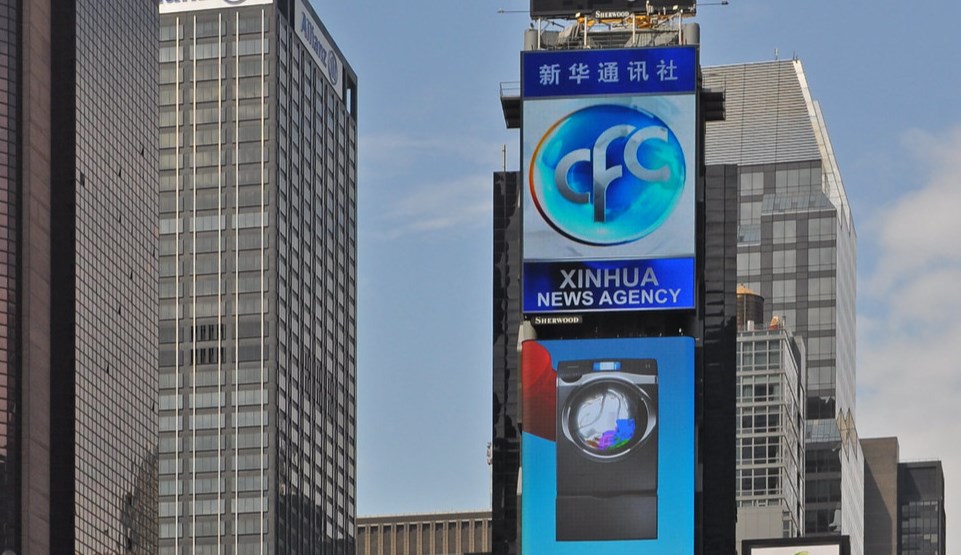The Foreign Correspondent’s Club of China (FCCC) just released its annual report on Media Freedom in China for 2019, titled “Control, Halt, Delete: Reporting in China under Threat of Expulsion.” And not surprisingly, the situation has not improved from the previous year. According to the report, not a single correspondent said that the situation in China had improved.
China’s heavy-handed attempts at censorship of the news that comes out of the country is nothing new. Nor are their attempts to spin what does to paint themselves in a more favourable light. But what is new, and particularly troubling, in China’s growing use of press accreditation and visas as a way to retaliate against journalists.
THREAD 1/5 It’s here: our 2019 working conditions report. The report finds that Chinese authorities have weaponized visas against the foreign press by issuing truncated press credentials and expelling journalists thru non-renewal. Read the full report: https://t.co/1T5uB7sxMr
— Foreign Correspondents’ Club of China (@fccchina) March 2, 2020
The report states that, in 2019, China issued a record number of short-term visa to local journalists. This makes it much easier, and quicker, for Beijing to remove journalists from the country. Along with this, 22 per cent of the journalists interviewed faced difficulties in getting their accreditations renewed, up from 13 per cent the year before.
Other key takeaways include:
- 82 per cent of the respondents saying they have experienced interference, harassment or violence while reporting.
- 70 per cent saying they experienced reporting cancellations or withdrawals of interviews that they know of, or believe to have been, caused by actions taken by the Chinese authorities.
- 38 per cent saying they were called into meeting with authorities about their work.
In all, the findings paint a grim picture for the foreign press tasked with covering events in China. And now things are shaping up to get worse.

Following last month’s news that the US State Department decided to have five Chinese news agencies register as government entities, the department has now ordered four of the five Chinese news outlets to reduce their staff by roughly 40 per cent. The decision caps the number of Chinese nationals working for the outlets at 100, down from the 160 currently employed. The Xinhua News Agency will be capped at 59, the China Global Television Network will be at 30, the China Daily at nine and China Radio International will be two. The agencies have until March 13 to decide which of their Chinese nationals will be sent home. The fifth in the group, People’s Daily, does not employ any Chinese nationals in the US, so they are immune from the caps.
The day after the news broke that the Department of State had declared the five agencies as foreign agencies on February 18, Beijing promptly expelled Josh Chin, Chao Deng and Philip Wen of the Wall Street Journal from China. In that case, Beijing used an op-ed by Walter Mead in the Wall Street Journal – that none of the three journalists had any hand in – as the pretext for their expulsion.

With this week’s news that Washington is effectively expelling 60 Chinese nationals from the country for their work, there is no telling how many more journalists inside of China will lose their visas and accreditation.
According to an anonymous official quoted by the Washington Post, the goal of the move “is to get to a place where Beijing moves to a more accommodating posture toward journalists, including Americans.” The Post also reported that the official declined to speculate over how Beijing will retaliate against foreign correspondents for the move, but “all options are on the table.”
The chances of Beijing taking this news to heart and opening up to unobstructed reporting is basically nil. A much more likely scenario is China will commence with a purge of foreign journalists, with Americans making up a large portion of those being expelled. This will be followed by Washington further cutting Chinese nationals working for the outlets here in the US. And on it will go. It will be like the current trade war, but with journalists as the commodities being taxed.

And like the trade war between the US and China, this is not a game where anyone is going to truly win. These moves will do nothing to improve China’s track record with foreign journalists on its soil. It will simply become harder to report from China at a time when the news from China is becoming more and more important on the global stage. And while it does give Beijing a way to part ways with journalists it doesn’t want there for any number of reasons, it also will be nothing to improve their image in the eyes of the world at large, which Beijing is desperate to do.
There will be no winners. But the foreign media in China – and their families who will be uprooted with them when they are forced to leave – will be the true losers in this game. And there is nothing they can do, save report on those forced to leave, and keep trying to get the stories out the world needs to hear about.
